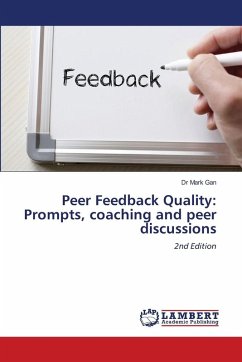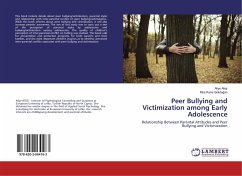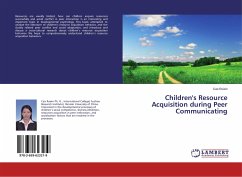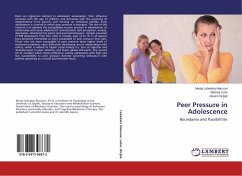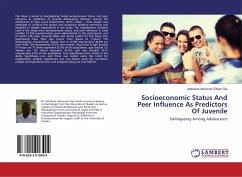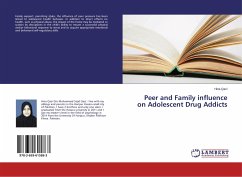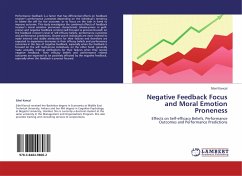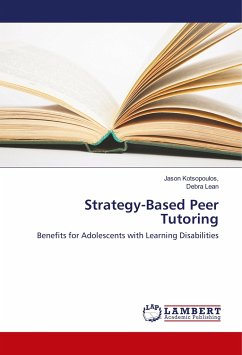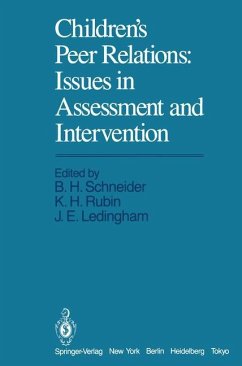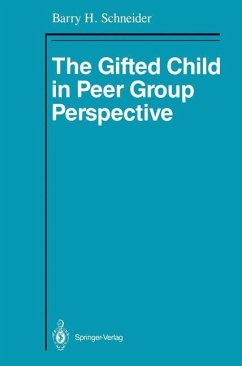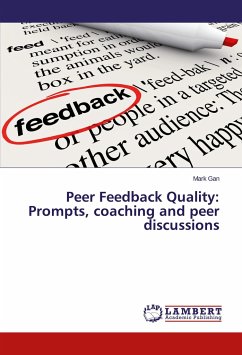
Peer Feedback Quality: Prompts, coaching and peer discussions
Versandkostenfrei!
Versandfertig in 6-10 Tagen
55,99 €
inkl. MwSt.

PAYBACK Punkte
28 °P sammeln!
Research on peer feedback has raised concerns about the cognitive demands of generating, interpreting and using feedback for revision. While there are numerous studies which examine the comparative effects of peer and teacher feedback on performance, less is known of how peer feedback works within a classroom context and what instructional support is necessary to bring about effective peer feedback for learning. Drawing from Hattie and Timperley's Feedback Model, the notion of peer feedback quality is extended from a dichotomous perspective to a progressive view. This book provides evidence fr...
Research on peer feedback has raised concerns about the cognitive demands of generating, interpreting and using feedback for revision. While there are numerous studies which examine the comparative effects of peer and teacher feedback on performance, less is known of how peer feedback works within a classroom context and what instructional support is necessary to bring about effective peer feedback for learning. Drawing from Hattie and Timperley's Feedback Model, the notion of peer feedback quality is extended from a dichotomous perspective to a progressive view. This book provides evidence from classroom observations, detailed interviews and instructional interventions to shed some light on the effects of coaching and prompting to support learners in meaningful and focused feedback interactions. The research described in this book should be especially useful to any teacher keen on creating opportunities for purposeful peer feedback discussion, where errors or mistakes are seen as learning points, and peer feedback goes beyond a corrective function or simply searching for the 'right' answers, to one which promotes connecting ideas and the negotiation of meaning.





